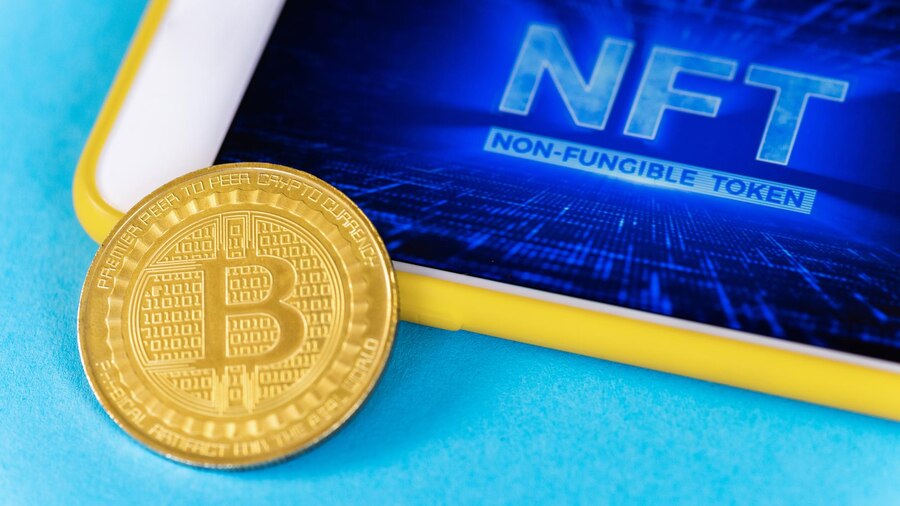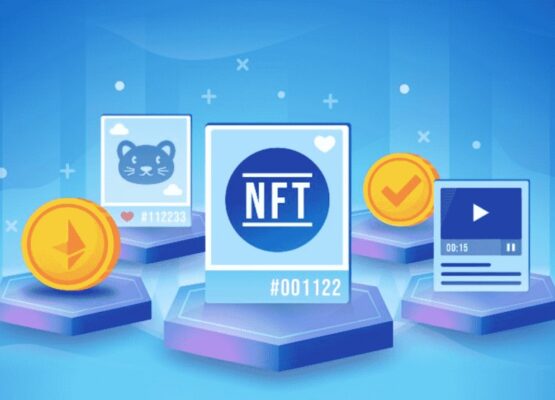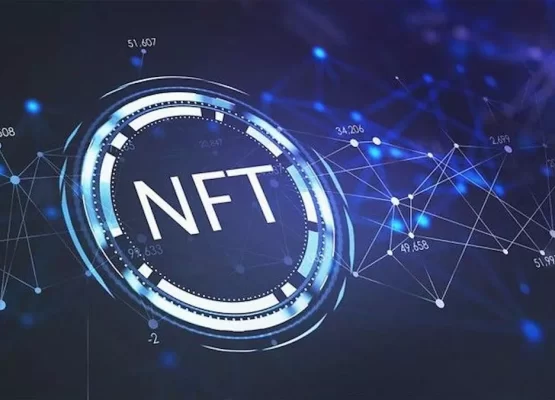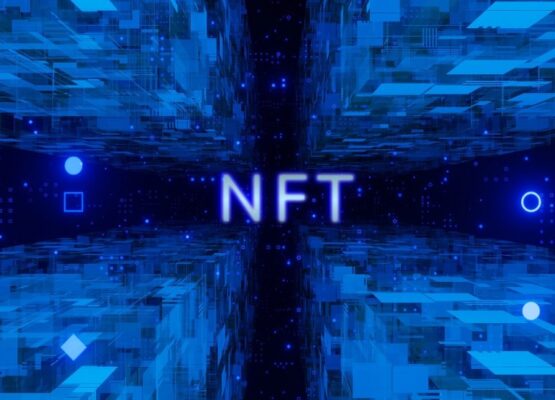Introduction to NFT Marketplaces
NFTs (non-fungible tokens) have taken the world by storm, creating a new way to buy, sell, and trade digital assets. As a result, several NFT marketplaces have emerged, providing platforms for creators and collectors to engage in transactions. NFT marketplaces offer a range of services, including the ability to mint, showcase, and sell NFTs. However, with so many options available, choosing the right NFT marketplace can be a daunting task. This article will discuss the various factors to consider when evaluating the best NFT marketplaces for your collection. By understanding these key factors, you can make an informed decision and select the NFT marketplace that best fits your needs.
Factors to Consider When Evaluating NFT Marketplaces
When evaluating best NFT marketplaces, there are several factors to consider, including:
- Reputation and Credibility: Choose a reputable and trustworthy NFT marketplace to ensure that your transactions are safe and secure.
- Fees and Costs: Consider the fees associated with buying, selling, and trading NFTs on the marketplace, including minting fees, transaction fees, and platform fees.
- User Interface and Ease of Use: Look for an NFT marketplace with a user-friendly interface that makes it easy to browse, buy, and sell NFTs.
- Availability of NFTs and Market Depth: Check the marketplace’s inventory to see if it offers the type of NFTs you are interested in, and whether there is a large enough market to support buying and selling.
- Security and Safety: Ensure that the marketplace has robust security features to protect against hacking, fraud, and other security risks.
- Customer Support and Assistance: Look for an NFT marketplace that provides good customer support and assistance in case of any issues or problems.
- Community and Networking Opportunities: Consider whether the marketplace offers opportunities to connect with other NFT collectors and creators, such as forums, chat rooms, and other social features.
Overall, choosing the right NFT marketplace is crucial to the success of your NFT collection. Carefully evaluate the above factors to find the marketplace that best meets your needs and preferences.
Reputation and Credibility of NFT Marketplaces
When evaluating NFT marketplaces, reputation and credibility are crucial factors to consider. Here are some things to keep in mind when assessing the reputation and credibility of an NFT marketplace:
- Reviews and Feedback: Look for reviews and feedback from other users to get a sense of their experience with the marketplace. Check out online forums, social media, and review sites to get a sense of how the marketplace is perceived.
- Social Media Presence: Check the marketplace’s social media presence to see how active they are and what their followers are saying about them. A strong and engaged social media presence can be a good indicator of a reputable and trustworthy marketplace.
- Transparency: Look for transparency in the marketplace’s operations, including their policies, fees, and terms of service. A transparent marketplace is more likely to be trustworthy and honest in their dealings.
- Industry Recognition: Check whether the marketplace has received any industry recognition or awards. This can be a good indicator of the marketplace’s reputation and credibility within the NFT community.
- Partnerships and Collaborations: Look for partnerships and collaborations with established and reputable companies in the NFT space. This can be a good indicator of the marketplace’s credibility and legitimacy.
Overall, the reputation and credibility of an NFT marketplace are important factors to consider when evaluating where to buy, sell, and trade NFTs. Do your research, read reviews, and carefully assess the marketplace’s transparency and industry recognition to make an informed decision.
Fees and Costs Associated with NFT Marketplaces
Fees and costs are important factors to consider when evaluating NFT marketplaces. Here are some fees and costs associated with NFT marketplaces that you should keep in mind:
- Minting Fees: Some NFT marketplaces charge a fee for minting new NFTs. This fee can vary depending on the marketplace and the complexity of the NFT being minted.
- Transaction Fees: Many NFT marketplaces charge a fee for each transaction, including buying, selling, and trading NFTs. These fees can be a percentage of the transaction value or a flat fee.
- Platform Fees: Some NFT marketplaces charge a platform fee for the use of their platform. This fee can be a percentage of the transaction value or a flat fee.
- Gas Fees: Many NFT marketplaces are built on blockchain technology, which requires users to pay gas fees to complete transactions. These fees can vary depending on the marketplace and the blockchain network being used.
- Withdrawal Fees: Some NFT marketplaces charge a fee for withdrawing funds or NFTs from the platform. This fee can be a percentage of the transaction value or a flat fee.
It’s important to carefully consider these fees and costs when evaluating NFT marketplaces. Look for marketplaces with transparent fee structures and reasonable fees that won’t eat into your profits or make it difficult to participate in the marketplace. Also, be aware that fees can vary depending on the type and value of the NFT being traded, so make sure to factor in these costs when making decisions about buying, selling, or trading NFTs.
User Interface and Ease of Use of NFT Marketplaces
User interface and ease of use are important factors to consider when evaluating NFT marketplaces. Here are some things to keep in mind:
- Intuitive Design: Look for an NFT marketplace with an intuitive and easy-to-use design. The layout should be clear and easy to navigate, with simple controls for browsing, searching, buying, selling, and trading NFTs.
- Mobile Compatibility: Many people prefer to use their mobile devices for buying and selling NFTs, so look for a marketplace with a mobile app or a responsive design that works well on smartphones and tablets.
- Filtering and Sorting: A good NFT marketplace should offer filtering and sorting options that allow you to quickly find the NFTs you’re interested in. Look for filters that allow you to sort by category, price, date, popularity, and other relevant criteria.
- Buying and Selling Process: The buying and selling process should be straightforward and easy to follow. Look for a marketplace that provides clear instructions and guidance on how to buy, sell, and trade NFTs.
- Payment Options: Look for a marketplace that supports multiple payment options, including credit cards, cryptocurrencies, and other popular payment methods.
- Speed and Performance: The NFT marketplace should be fast and responsive, with minimal lag or delays when loading pages, searching for NFTs, or completing transactions.
- Customer Support: Look for a marketplace with good customer support that can help you with any questions or issues that arise. This can include a robust FAQ section, email support, chat support, and other forms of customer assistance.
Overall, the user interface and ease of use of an NFT marketplace are important factors to consider when choosing a marketplace to buy, sell, or trade NFTs. Look for a marketplace that provides a seamless and intuitive user experience, with robust features and good customer support to help you along the way.
Availability of NFTs and Market Depth
The availability of NFTs and market depth are important factors to consider when evaluating NFT marketplaces. Here’s what to keep in mind:
- Variety of NFTs: Look for an NFT marketplace that offers a wide variety of NFTs, including different categories, themes, and styles. This will give you more options when looking to buy or sell NFTs.
- Rarity and Exclusivity: Some NFT marketplaces specialize in rare or exclusive NFTs, such as limited edition or one-of-a-kind NFTs. If you’re interested in these types of NFTs, look for a marketplace that offers a good selection.
- Market Depth: Market depth refers to the number of buyers and sellers on the marketplace, as well as the liquidity of the market. A deep market with a lot of buyers and sellers will make it easier to buy and sell NFTs at fair market prices.
- Trading Volume: Look for an NFT marketplace with a healthy trading volume, as this indicates that there is a lot of activity and interest in the marketplace.
- Historical Sales Data: Some NFT marketplaces provide historical sales data, which can be useful in evaluating the value and pricing of NFTs. Look for a marketplace that offers this data if you’re interested in using it to inform your buying and selling decisions.
- New Releases: Some NFT marketplaces offer new releases on a regular basis, which can be exciting for collectors and investors. If you’re interested in staying on top of the latest trends and releases, look for a marketplace that offers frequent new releases.
Overall, the availability of NFTs and market depth are important factors to consider when evaluating NFT marketplaces. Look for a marketplace that offers a wide variety of NFTs, has a deep market with good liquidity, and provides useful historical sales data to help you make informed buying and selling decisions.
Security and Safety of NFT Marketplaces
Security and safety are crucial considerations when evaluating NFT marketplaces. Here are some key factors to keep in mind, particularly when it comes to NFT marketplace development:
- Smart Contract Security: Smart contracts are a key component of many NFT marketplaces, as they are used to facilitate transactions and manage ownership of NFTs. It’s important to ensure that the smart contracts used by the marketplace are secure and have been audited for potential vulnerabilities.
- User Account Security: User accounts are another key component of NFT marketplaces, as they are used to manage ownership and access to NFTs. Look for a marketplace that uses strong authentication and encryption to protect user accounts from unauthorized access or hacking attempts.
- Cold Storage and Hot Wallets: Many NFT marketplaces use a combination of cold storage and hot wallets to manage and secure user assets. Cold storage involves keeping assets offline in a secure location, while hot wallets are connected to the internet and used for transactions. Look for a marketplace that uses a secure combination of cold storage and hot wallets to protect user assets.
- Compliance with Regulations: NFT marketplaces must comply with relevant regulations and laws, including those related to securities, money laundering, and consumer protection. Look for a marketplace that takes compliance seriously and has established processes and procedures to ensure that it operates legally and ethically.
- Insurance and Protection: Some NFT marketplaces offer insurance and protection against potential losses or theft. Look for a marketplace that offers these types of protections to help mitigate risk and protect your investments.
Overall, security and safety are crucial factors to consider when evaluating NFT marketplaces. Look for a marketplace that takes security seriously, has implemented strong security measures, and complies with relevant regulations and laws. This will help ensure that your NFT investments are safe and secure.
Customer Support and Assistance in NFT Marketplaces
Customer support and assistance are important factors to consider when evaluating NFT marketplaces. Here are some key considerations:
- Availability: Look for a marketplace that offers customer support during the hours you are likely to need it. Ideally, the marketplace should offer 24/7 support to ensure that you can get assistance whenever you need it.
- Channels: Consider the different channels through which the marketplace offers support. This may include email, live chat, phone, or a support ticket system. Look for a marketplace that offers multiple channels to ensure that you can get assistance in the way that is most convenient for you.
- Response Time: The speed with which the marketplace responds to your queries is also an important consideration. Look for a marketplace that responds promptly and efficiently to customer inquiries.
- Knowledge and Expertise: It’s important to ensure that the customer support team is knowledgeable and experienced in dealing with NFT-related queries. This will ensure that you receive accurate and helpful advice when you need it.
- Self-Help Resources: In addition to direct customer support, some NFT marketplaces offer self-help resources, such as a knowledge base or FAQs. Look for a marketplace that offers these types of resources to help you find answers to common questions or issues.
- Reputation: Finally, consider the reputation of the NFT marketplace and its customer support team. Look for reviews or feedback from other users to get a sense of the quality of the support offered.
Overall, customer support and assistance are important considerations when evaluating NFT marketplaces. Look for a marketplace that offers 24/7 support, multiple channels for assistance, prompt responses, knowledgeable staff, self-help resources, and a good reputation. This will ensure that you receive the assistance you need to make the most of your NFT investments.
Community and Networking Opportunities in NFT Marketplaces
Community and networking opportunities are important considerations when evaluating NFT marketplaces. Here are some key factors to keep in mind:
- Community Size: Look for a marketplace that has a large and active community of NFT enthusiasts, artists, and collectors. A larger community can offer more opportunities for networking, collaboration, and exposure for your NFT collection.
- Social Features: Some NFT marketplaces offer social features, such as chat rooms, forums, or social media integration. These features can help you connect with other members of the community, share insights, and learn from other collectors and artists.
- Events and Meetups: Look for a marketplace that offers events and meetups, either online or in person. These events can offer opportunities to network with other collectors and artists, learn from experts, and showcase your NFT collection.
- Artist and Creator Support: Consider whether the marketplace offers support for NFT creators and artists. Some marketplaces offer resources and tools to help artists create, promote, and sell their NFTs. These marketplaces may be more attractive to artists and creators, which can help build a more vibrant and diverse community.
- Brand and Reputation: Finally, consider the brand and reputation of the NFT marketplace. Look for a marketplace that is respected and well-regarded within the NFT community, as this can help attract a high-quality community of collectors, artists, and enthusiasts.
Overall, community and networking opportunities are important factors to consider when evaluating NFT marketplaces. Look for a marketplace that has a large and active community, offers social features, events and meetups, artist and creator support, and has a strong brand and reputation. This will help ensure that you can connect with other members of the community, learn from experts, and promote your NFT collection effectively.
Conclusion and Final Considerations for Evaluating NFT Marketplaces
In conclusion, evaluating NFT marketplaces involves considering several important factors. Reputation and credibility, fees and costs, user interface and ease of use, availability of NFTs and market depth, security and safety, customer support and assistance, and community and networking opportunities are all key considerations when choosing a marketplace for your NFT collection.
When evaluating these factors, it’s important to prioritize your own goals and preferences. For example, if you value a large and active community, you may prioritize community and networking opportunities over fees and costs. Similarly, if you prioritize security and safety, you may be willing to pay higher fees for a more secure marketplace.
In addition to these factors, there may be other considerations that are specific to your individual needs and circumstances. For example, if you are an artist or creator, you may prioritize marketplaces that offer tools and resources to help you promote and sell your NFTs.
Ultimately, the best NFT marketplace for your collection will depend on a range of factors, including your goals, preferences, and individual needs. By carefully evaluating these factors and considering your own priorities, you can find a marketplace that meets your needs and helps you get the most out of your NFT investments.




